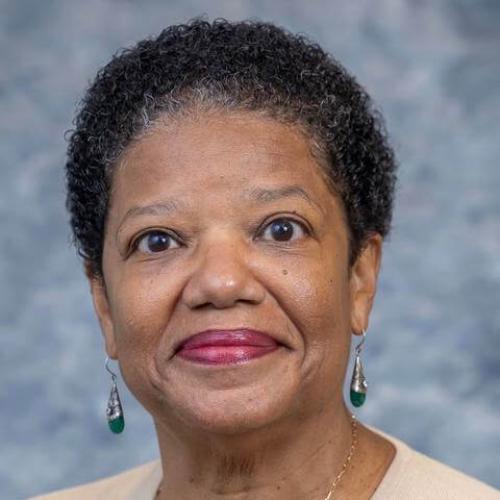Publications and Presentations
China and Taiwan in Latin America and the Caribbean
China and Taiwan in Latin America and the Caribbean: History, Power Rivalry, and Regional Implications
The book provides an examination of the evolution of China and Taiwan after 1949. This starting point situates the contestation for power between the two entities in the region after Taipei was recognized by the international community as the representative of China. The ramifications for Taiwan were drastic as country after country switched its recognition to China including those in the Caribbean and Latin America. Taiwan was able to maintain diplomatic relations with several countries in both regions through diplomatic strategies including providing financial assistance. This has waned over time considering China’s economic rise to power and Western Europe’s and the United States’ fall in global economic and political prestige and power.
U.S.–Africa Relations
U.S.–Africa Relations: From Clinton to Obama
U.S.–Africa Relations: From Clinton to Obama is an examination and analysis of U.S.–Africa relations during the Clinton, George W. Bush, and Obama administrations. It covers the entire continent with an inclusion of the Democratic Republic of the Congo (DRC), Nigeria, South Africa, Ethiopia, Egypt, Libya, Tunisia, Uganda, and Rwanda. Some of the issues addressed in the analysis include the militarization of Africa within the context of the war on terror and the creation of the Africa Command; the Arab Spring and questions concerning the U.S. role in Egypt, Tunisia, and Libya; the Great Lakes region and the role or lack thereof of the United States, beginning with a discussion of U.S. support for various leaders from Mobutu (DRC) to Kabila (DRC) to Kagame (Rwanda), and Museveni (Uganda) who did and do not act in accordance with the U.S. policy of encouraging democracy.
African Democracy and Development
African Democracy and Development: Challenges for Post-Conflict African Nations
Various African nations have undergone conflict situations since they gained their independence. This book focuses on particular countries that have faced conflict (civil wars and genocide) and are now in the process of rebuilding their political, economic, social, and educational institutions. The countries that are addressed in the book include: Rwanda, Mozambique, Sierra Leone, Liberia, and the Democratic Republic of the Congo. In addition, there is a chapter that addresses the role of the African Diaspora in conflict and post-conflict countries that include Eritrea, Liberia, and Somalia.
Forced Migration in Eastern Africa
Forced Migration in Eastern Africa: Democratization, Structural Adjustment, and Refugees
This study enriches understanding of East Africa's refugee situation by examining the conditions that gave rise to it and how the refugees themselves sought to reconstruct their lives. Focusing on the 1990s, Veney compares Kenya and Tanzania, two nations that did not generate many refugees, but become important hosts for the general region.
Leisure in Urban Africa
Leisure in Urban Africa
In this fascinating study, an interdisciplinary team of scholars reflect on the complex conceptions, creation, and consumption of leisure in African cities from the nineteenth century to the present. Collectively, they bring together often unconnected modes of analysis, research, and debate on leisure in African studies and draw intriguing comparisons with leisure studies in Western Europe and North America.
The Construction of Race
The Construction of Race: Being African American and Teaching the History of George Floyd in Kenya
The role of the United States in Nigeria’s conflicts
The role of the United States in Nigeria’s conflicts - the Niger Delta and Northeastern Nigeria
This article is an examination of the role of the United States (US) in the Niger Delta and Northeastern Nigeria during the Bill Clinton, George W Bush, Barack Obama and Donald Trump administrations. The article is an attempt to analyse and examine the role and actions of the US Government in both regions, with an emphasis on the Obama administration, which saw the American Government, media and ordinary citizens discover and learn about a little-known group called Boko Haram. The responses and actions of the US Government are analysed and discussed in the context of the legislative and executive branches, and their efforts to designate first individual members of Boko Haram and then the entire organisation and its offshoots as terrorist organisations.
The Political Economy of Development and Democratic Transitions in Kenya
The Political Economy of Development and Democratic Transitions in Kenya
CONFERENCE PAPER PRESENTATIONS
“The African Diaspora in the United States and Its Response to the War on Terrorism,” The Annual Toyin Falola International Conference on Africa and the African Diaspora, Lagos, Nigeria, July 1-3, 2012.
Invited Panelist, “Women in Peacebuilding in Post-Conflict Liberia and Uganda,” 106th Annual American Sociological Association Conference, Las Vegas, Nevada, August 18-21, 2011.
Invited Panelist, “The Presence of Africa in American Politics,” Rethinking Cultural
Imperialism, Symposium on Rethinking America and Africa, University of Oxford, The
Rochermere American Institute, September 20, 2010.
“African Refugee Women: A Journey from Violence/A Path to Peace,” Bellarmine College of Liberal Arts Forum, Loyola Marymount University, Los Angeles, October 25-31, 2009.
“Politics and the Making of Diasporas in the United States,” First Global Conference: Diasporas – Exploring Critical Issues, Mansfield College, University of Oxford, July 5-7, 2008.

